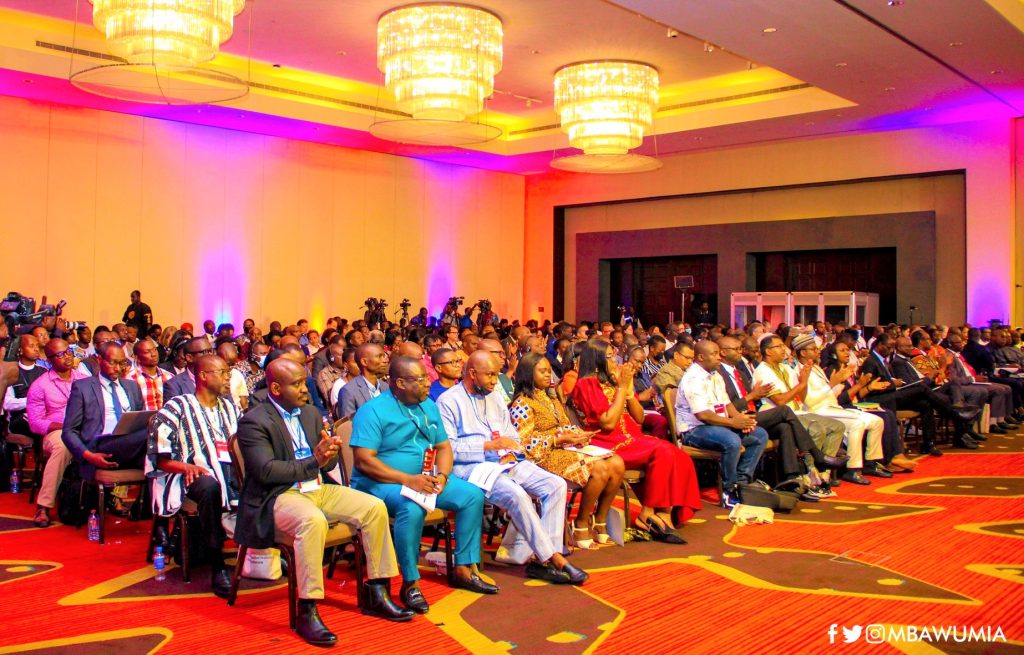By Godwill Arthur-Mensah
Accra, Oct. 19, GNA – Vice President Mahamudu Bawumia has urged African leaders and experts in water, sanitation, and hygiene (WASH) to seek innovative ways to effectively address the sector’s challenges.
He said it was imperative to deepen collaboration and continuously improve the traditional approach adopted in the past in addressing those challenges to yield positive outcomes.
He, therefore, expressed the government’s resolve to pursue aggressive infrastructure development to achieve the Sustainable Development Goals (SDGs) on water and sanitation.
Vice President Bawumia made the call when he opened the “All Systems Go Africa” symposium in Accra on Wednesday for experts to brainstorm on the best ways to provide WASH services to the populace.
The three-day conference attracted more than 250 delegates across Africa, which provided an opportunity for water and sanitation experts, academia, government officials, development partners and policy-makers to dispassionately engage in apolitical discussions on strategies towards addressing WASH challenges in Africa.
It is on the theme: “Uniting Systems Thinking with Technical Expertise and Public Policy to Accelerate the Vision of Universal Access to Water, Sanitation and Hygiene”.
It is the first to be held in Africa, being organised by the Government, IRC International Water and Sanitation Centre, and UNICEF.
The symposium is occurring at a crucial time when Africa’s population keeps rising, with its attendant high demand for WASH-related services.
Vice President Bawumia said: “There is the need to continue to improve the traditional approach adopted in the past to yield better results.”
He said it was imperative to tap into the unique experiences, skills and stock of knowledge of the experts, to help chart a new course for improved WASH service delivery.
It is on record that out of the more than half a billion people living without adequate supply of water globally, a significant proportion is found in Sub-Saharan Africa.
“In fact, this is among the fundamental forces that drove African Leaders to commit to a bold vision, that everyone on the Continent will have access to safe water by 2025,” he said.
However, the story had not changed much, as it was estimated that more than 95 million Africans lack access to safely managed water and a further 504 million live without safe sanitation, Dr Bawumia said.
That notwithstanding, African governments had demonstrated a strong leadership in resource allocation to the WASH sector, but unfortunately, progress seemed slow, as that had not matched the population growth.
“This means that millions of families, including children, risk being left without critical life-saving water and sanitation services,” he said.
“The African Development Bank says currently, Africa requires between $87 billion and $112 billion, to finance the execution of WASH infrastructure annually.”
The Vice President said President Nana Addo Dankwa Akufo-Addo, who was the Co-Chair of the SDGs, had demonstrated adequate commitment to ensuring that Ghana met the 2030 Agenda, with equal emphasis on SDG -Six.
That ambition is reflected in the many projects being undertaken by the Government in the WASH sector, some of which have already been completed and commissioned, whilst processes are ongoing for others to commence.

These include the Upper East Water Supply Project, Yendi, Tamale, and Damongo Water Supply projects.
Others are the Wenchi, Sunyani, Keta, and Sekondi-Takoradi water supply project, as well as the Greater Accra Metropolitan Area (GAMA), and the Greater Kumasi Metropolitan Area Water and Sanitation projects.
These interventions are expected to result in an additional 4.3 million people having access to potable water.
According to the 2021 Population and Housing Census, the number of households with access to toilet facilities has increased from 33 per cent to 59.3 per cent.
With respect to water, the percentage of households with access to basic drinking water has seen a significant improvement from 79 per cent in 2018 to 87.7 per cent in 2021.
These improvements have resulted in significant gains, with not a single case of cholera recorded over the past five years.
Dr Bawumia said Ghana’s achievements had been possible, for instance, in the sanitation space because of government’s decision to continue to encourage the public-private partnership option in the execution of socio-economic infrastructure.
“Clearly, this attests to the recognition by government that no meaningful progress in Ghana’s march towards socio-economic transformation can be made without the collaboration with the private sector.”
He reiterated the Government’s resolve and assurance to continue creating the enabling environment for the private sector to thrive.
GNA